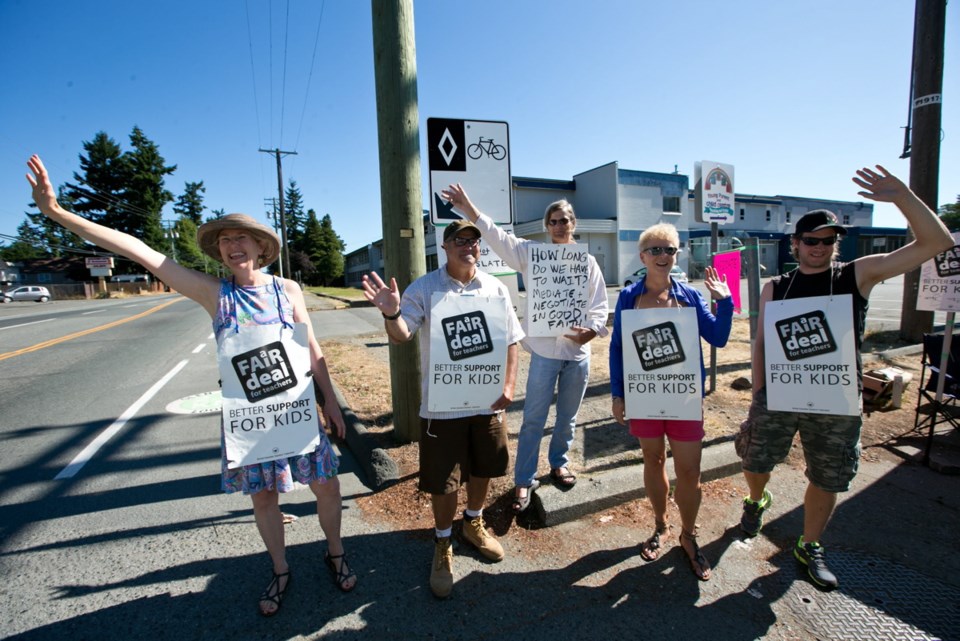Parents will receive $40 a day for each child under age 13 if the B.C. teachers’ strike continues into September, Finance Minister Mike de Jong announced Thursday.
De Jong said parents will register online to receive the money to offset the cost of child care, tutoring or other educational opportunities.
“I do want to emphasize that this is meant only as a contingency if that circumstance exists,” he said.
“But if there is a disruption, if children aren’t back in school, we understand that parents and families incur the bulk of the costs associated with that.”
De Jong said the government will pay the money by cheque as quickly as possible. “I anticipate that would be early in October.”
The subsidies do not apply to students 13 and older because they have “additional resources and abilities” to access online tutoring and educational opportunities, de Jong said. They also do not require the same level of supervision as children 12 and younger.
De Jong said parents will not be eligible to claim for the days their children missed in June.
The subsidies are expected to eat up the $12 million a day the government saves in education spending during a strike.
About 40,000 public school teachers went on strike June 17 — 10 days before the end of the school year, suspending classes for about 500,000 students. The walkout followed three weeks of rotating, one-day strikes.
B.C. Teachers’ Federation president Jim Iker called the government’s latest tactic “a blatant and divisive attempt to prolong disruption in B.C. schools.”
“This scheme will not help improve class sizes, increase support for children with special needs, or provide more one-on-one time for all students,” Iker said in a statement. “It is my hope that the government will redirect its energies into reaching an agreement with B.C. teachers through mediation this summer.”
Iker said the union bargaining team has been in regular contact with the B.C. Public School Employers’ Association over the last three weeks. ‘‘It’s time for the government to finally agree to mediation so we can reach a fair settlement and get schools open for the first day back in September.”
The subsidy plan “leaves important things to be done,” said John Bird, president of the Victoria Confederation of Parent Advisory Councils.
“It doesn’t solve the problems that are there. It doesn’t move the agenda forward to give kids in classrooms what they need, which is what we’re going to keep talking about. My hope is that we still get this together by September.”
DeJong also expressed hope that the two sides will resume talks next week and reach a deal before the scheduled start of school.
As to what happens to the money the government has saved already, de Jong said “that’s really a conversation that will take place at the negotiating table.”
De Jong said governments, including his, have been too quick to impose contracts on teachers in the past. “I think the BCTF has come to expect that and that has characterized and influenced the relationship in negative ways.”
He repeated his assertion that, this time, the government has no intention of recalling the legislature early to force teachers back to work.
The B.C. School Trustees’ Association, meanwhile, issued a back-to-school action plan Thursday. The plan calls for the BCTF to lower its demands to “fall within the range accepted by other public sector unions,” and for the government to put the money it saved from the strike into the Learning Improvement Fund to deal with class size and composition issues.



